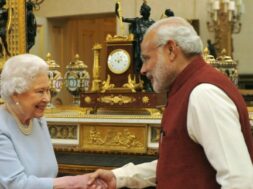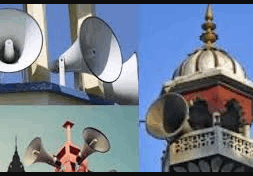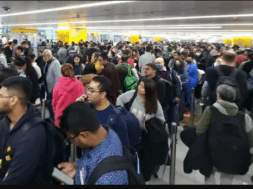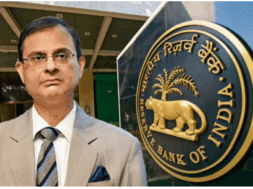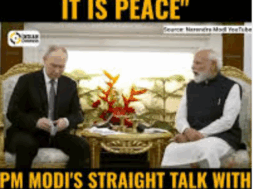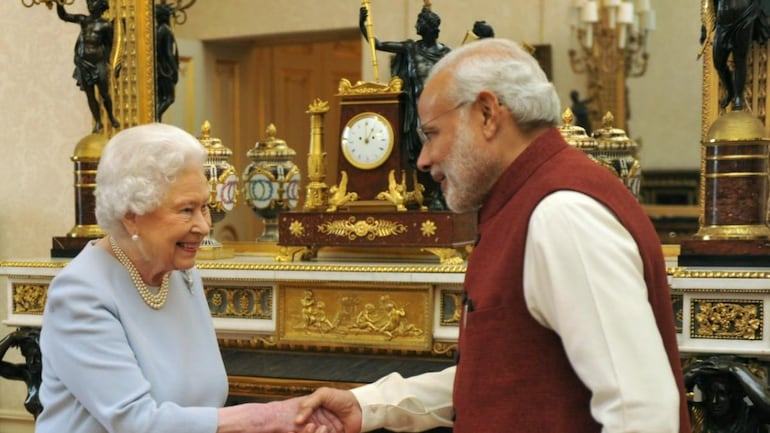
Roving Periscope: India mourns demise of Queen Elizabeth II, declares a day’s mourning on Sept 11
Virendra Pandit
New Delhi: Call it a sad coincidence: on a day Prime Minister Narendra Modi unveiled the statue of Netaji Subhas Chandra Bose in the Rajpath canopy, where the statue of British King George V stood until 1955, and renamed Janpath (formerly Kingsway) in New Delhi on Thursday, Queen Elizabeth II passed away in the United Kingdom.
Inaugurating the event, Modi said India had shed one more vestige of slavery.
But Delhi shared some enigmatic umbilical cord with London and Washington. Historians called India the ‘Crown Jewel’ of the former British Empire. Interestingly, some British officials who failed in colonial America in the 1770s and were punished with a posting in India became successful here. The best example was Warren Hastings, the first Governor-General of Bengal in the East Indian Company, who, together with Robert Clive, laid the foundation of the British Raj on the Indian subcontinent.
Paying tributes after her demise on Thursday, Modi tweeted: “Her Majesty Queen Elizabeth II will be remembered as a stalwart of our times. She provided inspiring leadership to her nation and people. She personified dignity and decency in public life. Pained by her demise. My thoughts are with her family and the people of the UK in this sad hour.”
On Friday, India declared a one-day state of mourning for September 11 in honor of the British Queen, who passed away at Balmoral Castle, Scotland, at 96.
The Queen’s full name was Elizabeth Alexandra Mary Windsor. She has left behind three sons, a daughter, and eight grandchildren.
Born on April 21, 1926, at Mayfair, London, Elizabeth became the Queen of the United Kingdom on February 6, 1952, and remained one until she passed away on September 8, 2022, at Balmoral Castle. Her 70 years and 214 days of reign were the longest of any British monarch and the second-longest recorded of any monarch of a sovereign country.
Queen Elizabeth’s husband, Prince Philip, the Duke of Edinburgh, passed away in April 2021 at 99.
In her long life, she witnessed the Second World War, the collapse of the once-mighty British Empire, the rise of Mahatma Gandhi, Nelson Mandela, and several anti-colonial stalwarts, the Partition of India, the emergence of former colonies as sovereign nations, the Commonwealth, and the return of Hong Kong to China in 1997, that revivified the Dragon as a significant power and altered the game of geopolitics.
In her seven decades on the British Throne, Elizabeth II ‘appointed’ 56 Prime Ministers. They included three women—Margaret Thatcher, Teresa May, and now Liz Truss. The new PM, Truss, was the last crucial British person outside the royal family to have met the Queen barely 48 hours before her demise.
On Thursday, the Britons saw members of the royal family trooping to Balmoral, Scotland, where the Queen was recuperating from her age-related illnesses, including a long Covid-19. The Cabinet Secretary informed PM Liz Truss about the demise at about 4.30 PM Greenwich Mean Time (GMT), or 10 PM, Indian Standard Time (IST), two hours before it officially made the sad news public.
Her successor, Prince of Wales Charles, now King Charles III, 73, is well-known in India. In 1981, actor Padmini Kolhapure, who had invited the visiting Prince to the sets of a film in Bombay (now Mumbai), garlanded and famously kissed him on the cheek. It became ‘breaking news’ worldwide!
The new monarch is the oldest heir to ascend the British throne. Following the British tradition that the Throne must not remain vacant, he assumed the title of King immediately after his mother’s death. His official coronation, however, will take place later.
Although Britain has evolved as a democracy since 1215, the country has kept the Crown as a symbolic Head of the State. To follow this tradition, within 24 hours of the monarch’s death, an Accession Council would formally proclaim that a new monarch has ascended the Throne.
Informally, Buckingham Palace proclaimed Charles as the King, and his wife Camilla, Duchess of Cornwall – as the Queen consort.
